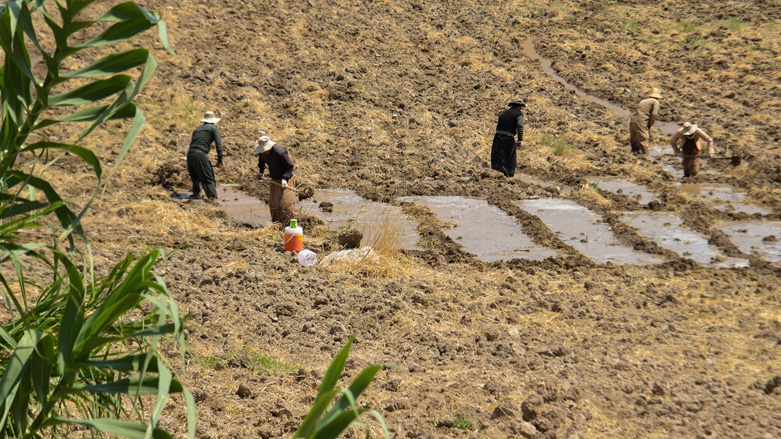KRG will protect agricultural sector, Kurdistan PM says

ERBIL (Kurdistan 24) – The new Kurdistan Regional Government (KRG) is committed to protecting the autonomous Kurdish region’s agricultural sector, Prime Minister Masrour Barzani said on Tuesday.
Prime Minister Barzani made the comments in a meeting with Mohammed Haji Mahmood, head of the Kurdistan Socialist Democratic Party, which has one seat in the Kurdistan Parliament.
Mahmood began the meeting by underlining the faith that the people of Kurdistan have in the KRG’s new cabinet led by Barzani, adding they will support the new government’s agenda, a statement from the Kurdish PM’s press office said.
For his part, Prime Minister Barzani emphasized his administration’s promise to serve all of the people of the Kurdistan Region, noting that with their support, the new government can meet their demands, the statement added.
The Kurdish prime minister also underlined the importance of continued communication between the autonomous Kurdistan Region and Iraq as both sides work to settle ongoing differences, especially those related to the economy.
“Our talks with Baghdad are ongoing, and they are taking place based on mutual understanding,” Barzani was quoted as saying in the statement.
In the past few years, farmers have repeatedly called on the KRG to block the flow of foreign products that are already produced or grown at home into the Kurdistan Region, and argue they are capable of fulfilling the needs of the domestic demand.
Related Article: Following tomatoes, KRG temporarily halts imports on pomegranates
On Sunday, the agricultural ministry’s halt on tomato imports came into effect. “A decision was made to protect homegrown products from the competition of imported tomatoes,” the ministry’s spokesperson, Hussein Hama-Karim, said in August.
His comments came days after several videos circulating on Kurdish social media networks showed local farmers disappointingly dumping tons of their inventory – tomatoes, cucumbers, etc. – because of aggressively low market prices that barely cover the cost of production.
